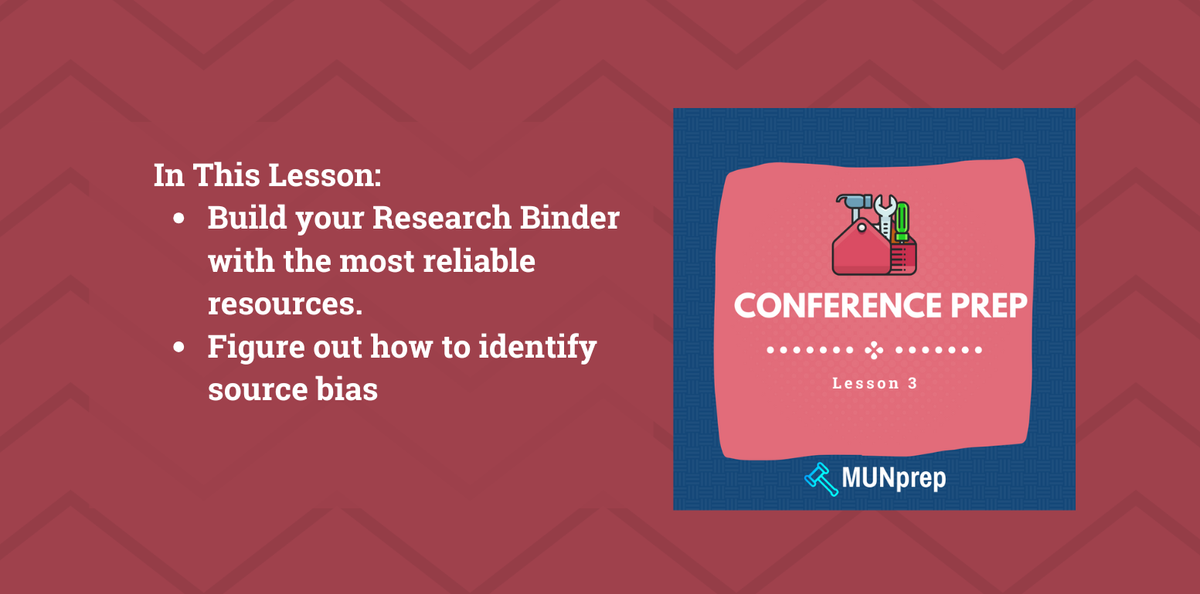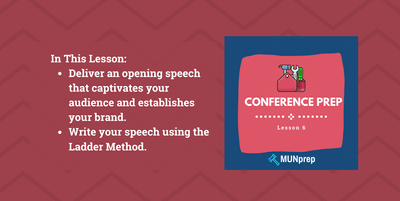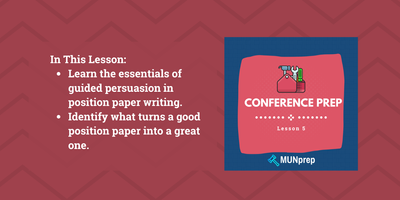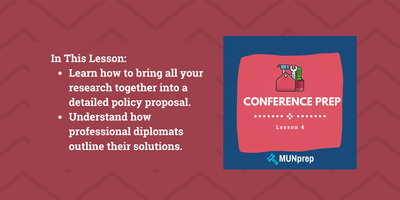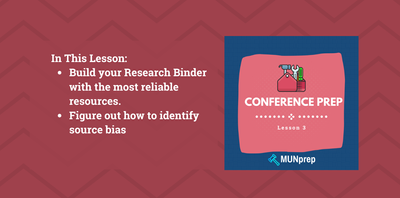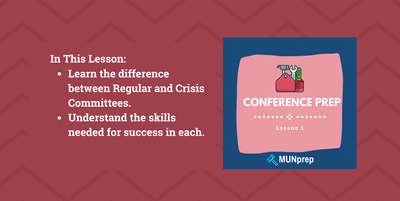MUN Background Guides - A Simple 3-Step Approach
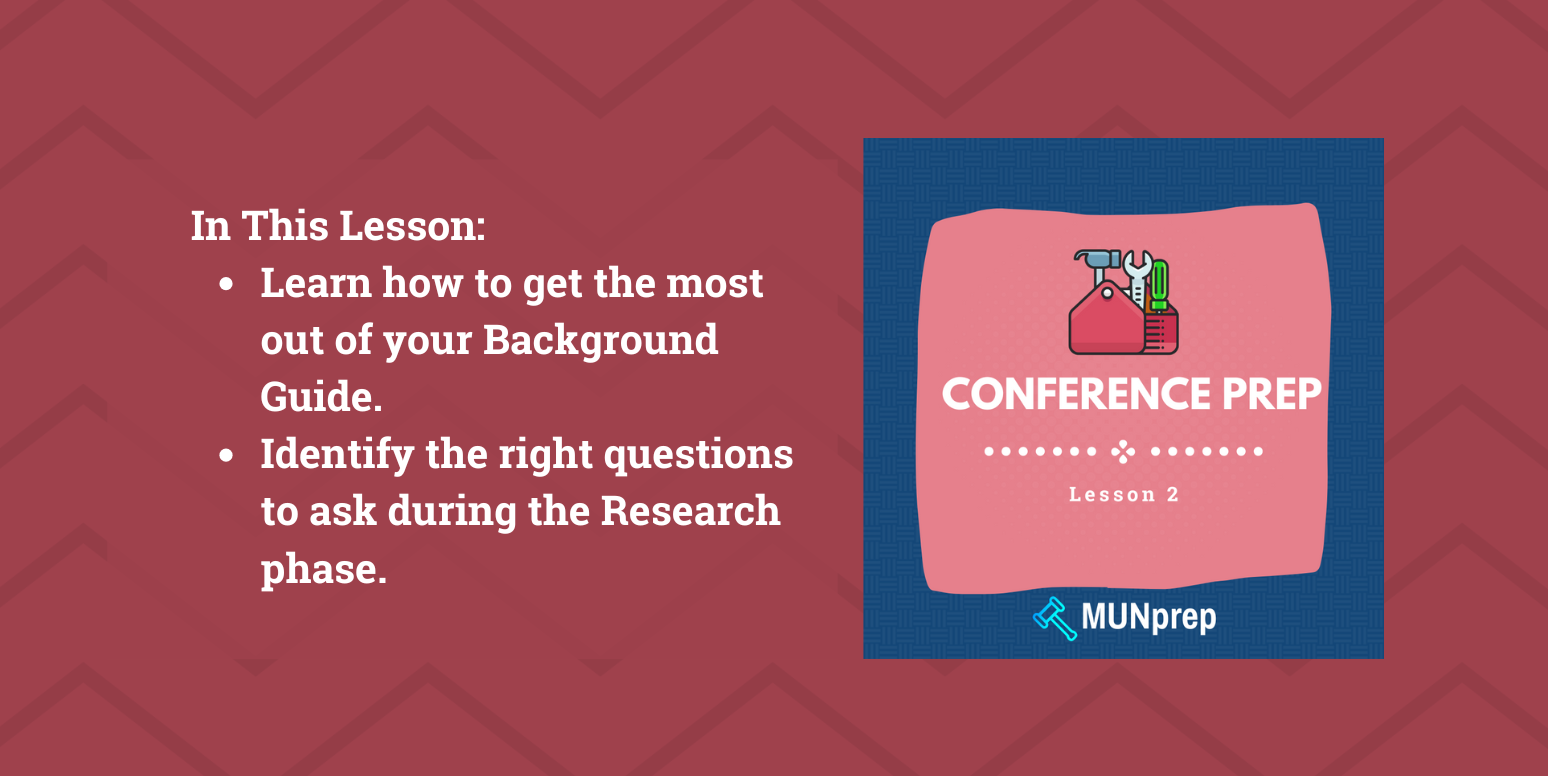
Preparing for your next Model UN conference means reading through a background guide (sometimes called a Research Brief).
The problem? These guides can sometimes feel like you're hunting down that needle in the haystack. What's worse, if you don’t approach it right the first time, you’ll waste precious hours re-reading the whole thing and trying to make sense of it all.
But don't worry! We're here to save you from this frustration, with our three-step approach (patent-pending), we'll make your next background guide feel like a breeze.
And before you know it, you'll be diving in and having an absolute blast.

Background Guides - The Basics
Your background guide is written by the dais to help you understand what to expect in your committee. It is the starting point for any conference-prep journey.
- Your background guide serves as a road map - offering valuable insights into the topic and helping you to develop informed positions that you can turn into a position paper.
- It can also spark inspiration - by presenting different perspectives and highlighting different approaches, you can get ideas for your own solutions that best suit you and your delegation.
While the information in your background guide may vary from conference to conference, they will normally include most of these headers: Key Terms, Topic Background, Key parties involved, Past Resolutions, Further Research Starting Points, Focus Questions.
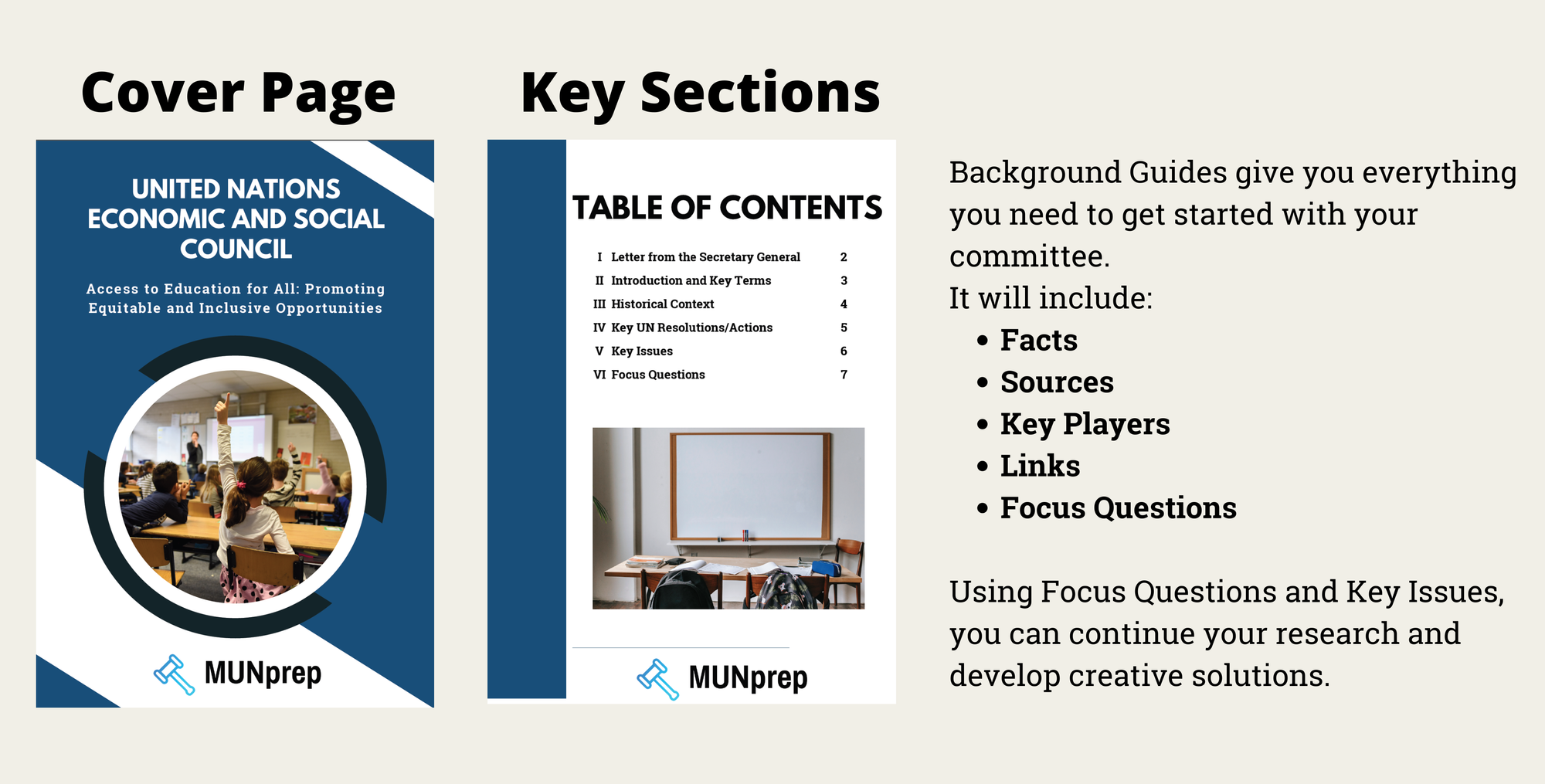
The Conference Prep Funnel
Believe it or not, every individual stage of the conference prep process is pretty important, and has its own important goal.
Think about all the work you put into conference prep as moving through one big funnel - where you start with piles of disconnected ideas and information, eventually bringing everything together with an amazing policy proposal.
Your background guide is actually at the top of this funnel.
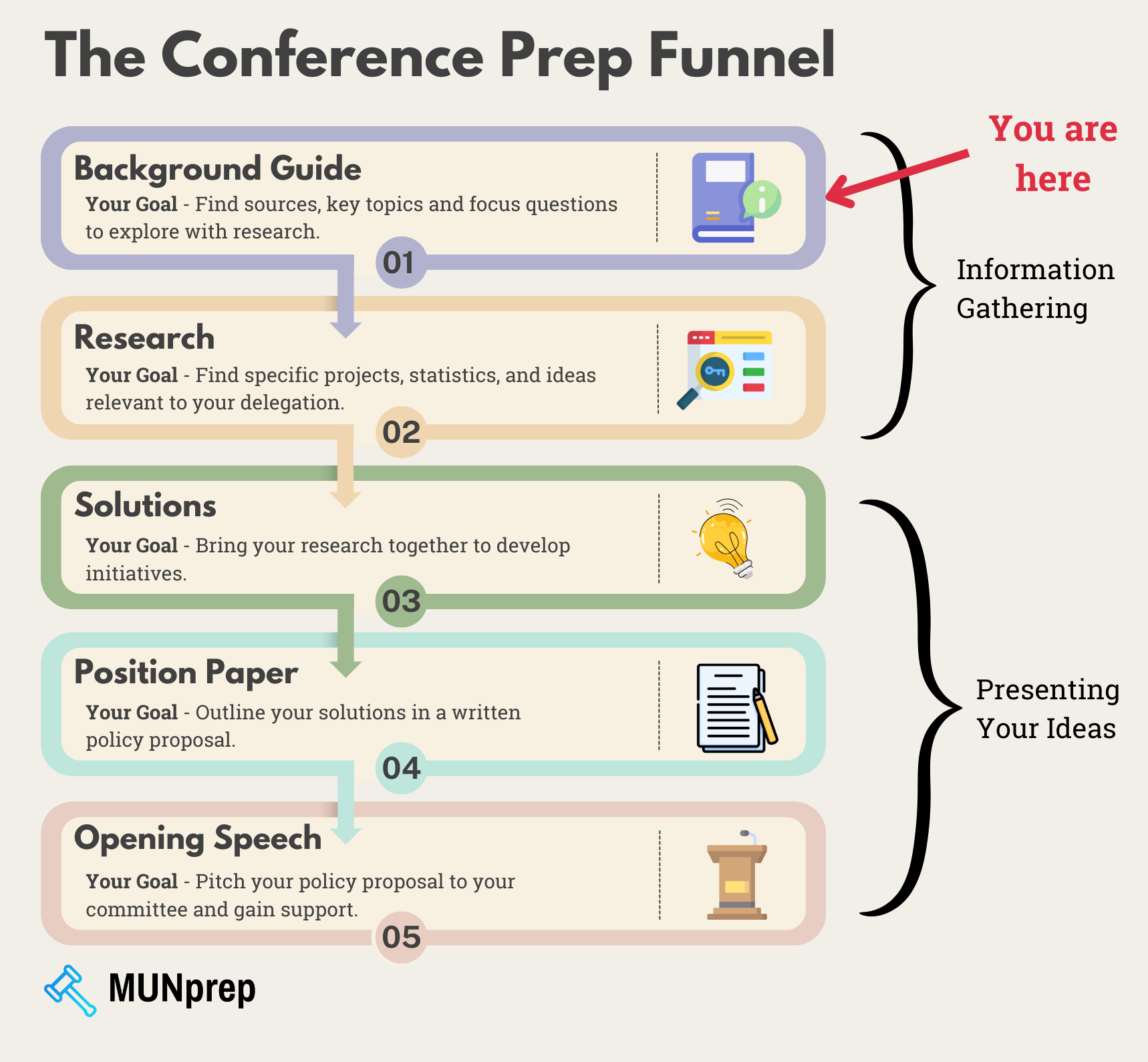
As you can see, the way that you take on the background guide will end up affecting affect every single other part of your conference prep process.
Up next, we'll teach you our simple 3-stage approach on how to read a background guide.
Our 3-Stage Background Guide Approach
Let's show you how to work through your background guide, we recommend a three step approach:
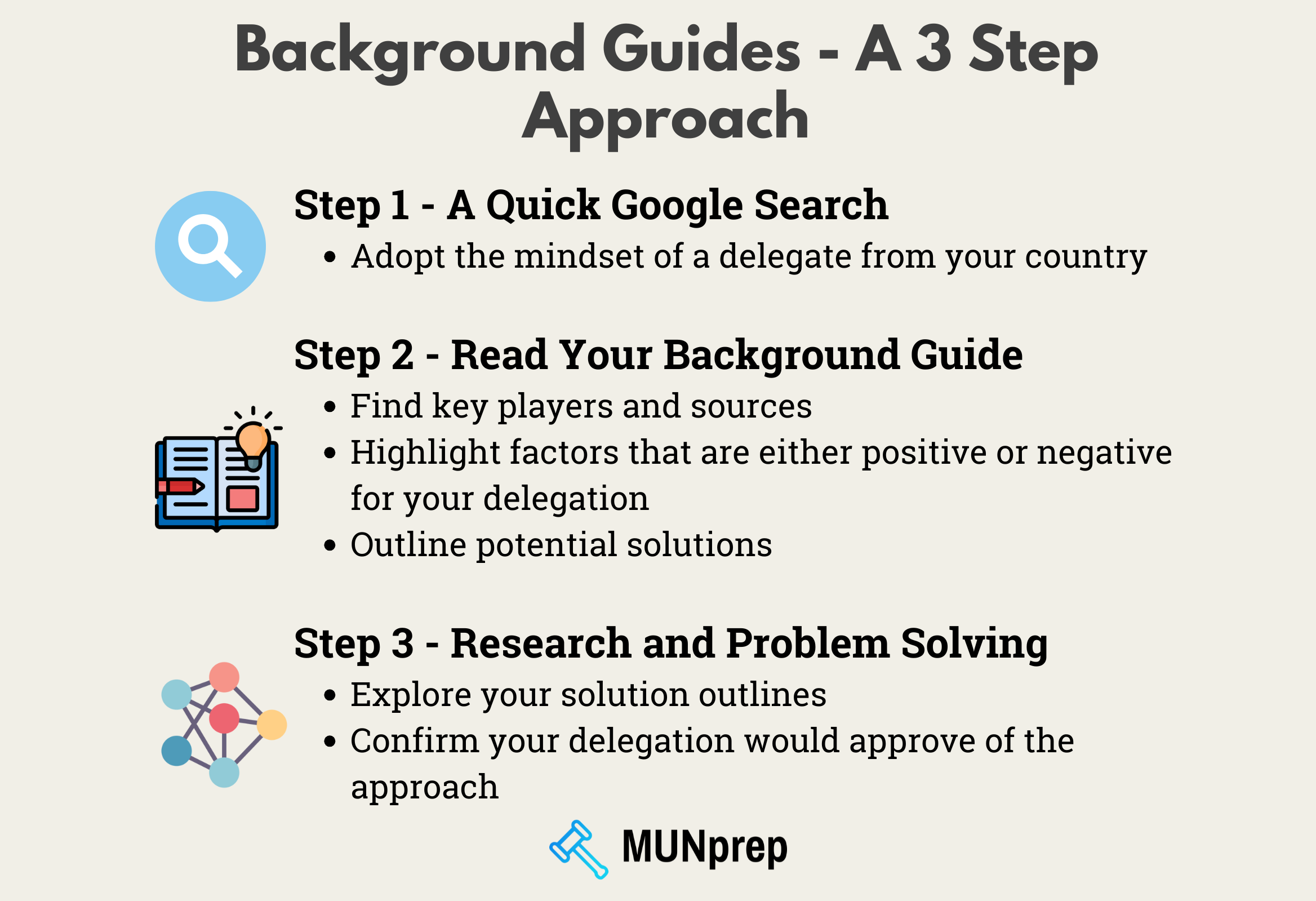
1- A Quick Google Search
To start, you're going to want to know the basic facts and figures. This can really help when you're going through your background guide to get yourself into the mindset of a representative of your delegation.
For example, if you're preparing for a committee on nuclear energy and you find out that your country had a nuclear power plant meltdown, you might be more concerned about safety.
This means that when you read your background guide, you'll be able to prioritize more of the safety-related information.
What to Research
Make a few general google searches regarding your country and topic, this should include questions like:
- Recent news on [country name] and [committee topic]
- Current [country name] initiatives related to [committee topic]
- [Country name] stance on [committee topic]
When you're trying to answer these questions, try out some of our recommended starting points. These sources are reliable and easy to use:
By this point, you should have a general idea of the angle that your country has on the topic. We'll go much more in depth on research later on.
2- Reading and Annotating Your Background Guide
Reading the Background Guide might be the single most important part of the conference preparation process.
By carefully going through the guide, you will gain a comprehensive understanding of the historical context, current challenges, and potential solutions related to your assigned committee.
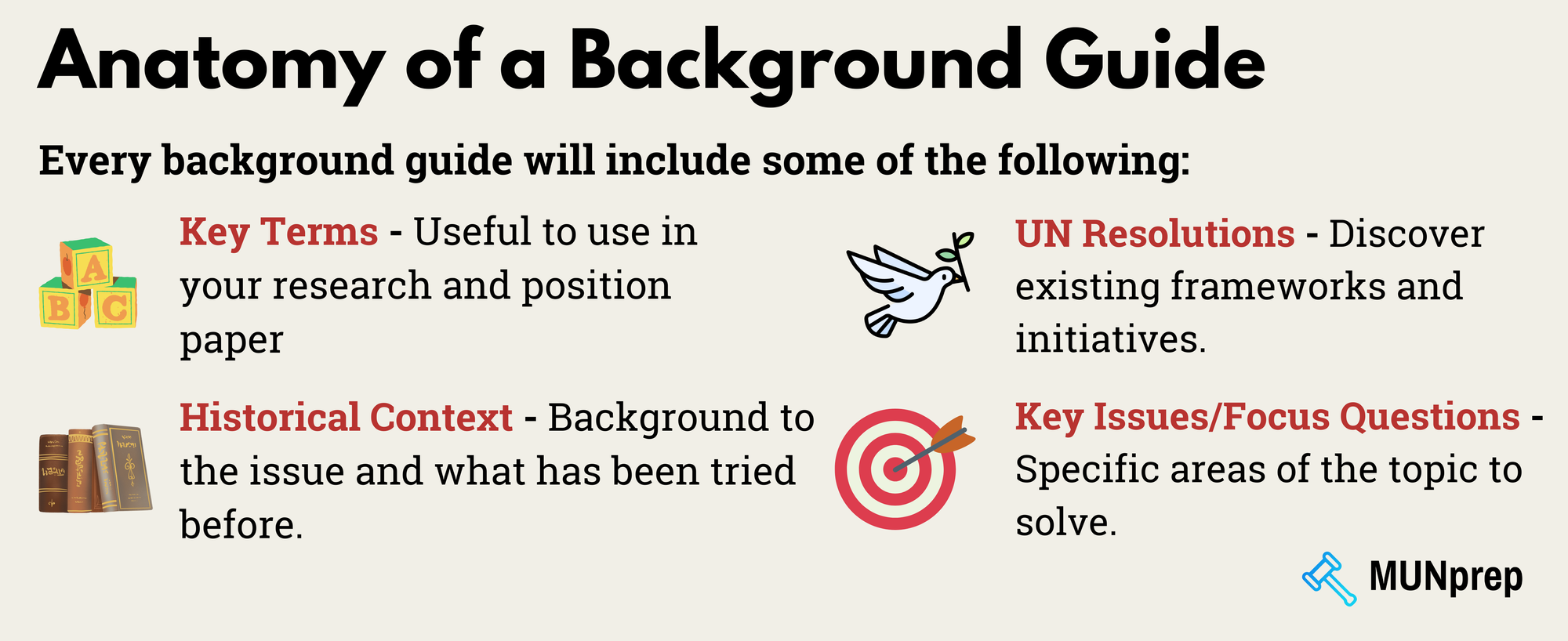
One careful read-through of your background guide is going to be more beneficial than skimming it multiple times.
Pro-Tips for Annotating
By using these techniques, you can maximize your understanding and set up a solid foundation to continue the preparation process with.
What to look for in each section:
Your Background guide will normally have information on the following 4 subject areas, here's how to get the most from each:
- Section 1 - Key Terms
- Section 2 - Historical Context
- Section 3 - Key UN Resolutions
- Section 4 - Key Issues/Focus Questions
Section 1 - Key Terms
Understand the important vocabulary for your topic and what factors might affect it.
Precise Definitions:
- Make sure you understand each term as it is used in international forums (e.g., the UN). Terminology can sometimes have a specific legal or diplomatic meaning that differs from a casual definition.
- Example: “Universal Primary Education” typically refers to ensuring all children have access to schooling at the primary level. If the background guide only discusses primary and middle schools, it likely means your solutions shouldn’t focus on tertiary (university-level) education.
Scope Indicators:
- Note any words or phrases that define the boundaries of the problem, such as specific age groups, regions, or economic conditions. These will shape the kind of proposals you develop.
Relevant Concepts and Acronyms:
- UN committees often use acronyms (e.g., SDGs, NGOs, UN agencies) that you should understand. If the guide mentions something like “UNICEF,” you should know their mandate and how they might factor into solutions.
Section 2 - Historical Context
What was tried in the past, how effective was it and why did or didn’t it work?
Major Milestones and Events:
- Identify significant dates or events that shaped the current situation. Who were the key stakeholders?
- Understand the political, social, and economic background. For instance, if the topic is about global health initiatives, note how past pandemics were handled and what lessons were learned.
Past Efforts and Their Outcomes:
- Look for details on previous programs or resolutions: were they successful, partially successful, or complete failures?
- Figure out the why behind their success or failure. Did they lack funding? Did they face political barriers? Was there insufficient coordination among stakeholders?
Unresolved Challenges:
- Even if a past effort made progress, there may be lingering challenges. These weak points can be your entry to propose more refined, targeted solutions.
Section 3 - Key UN Resolutions
This section outlines what the UN is currently working on or has already accomplished. Look for:
Resolution Numbers and Titles:
- Note the specific UN resolution(s) mentioned (e.g., “UNSC Resolution 1325,” “GA Resolution 70/1”), so you can reference them accurately in debate and your working papers.
Key Dates and Timelines:
- Understand when these resolutions were passed and their duration or deadlines. Identifying if a resolution has expired or is ongoing will shape your approach.
- Keep an eye on future timelines: is there a target year for goals (e.g., 2030 for the SDGs)?
Relevant SDGs and NGOs:
- UN background guides often tie the topic to the Sustainable Development Goals (SDGs). Which SDGs are most relevant to your issue?
- Identify NGOs or UN agencies actively working on the issue (e.g., UNDP, WHO, UNICEF). Their resources and frameworks can support your proposals.
Current Initiatives or Programs:
- Are there ongoing UN programs or campaigns? For instance, if the guide references “Education Cannot Wait,” you should understand how that fund operates to suggest improvements or collaborations.
Section 4 - Key Issues/Focus Questions
The MOST Important Section, here the Chair is telling you what you should look in to:
Specific Problem Areas:
- If the guide lists issues like “lack of funding,” “insufficient infrastructure,” or “regional security concerns,” these are hints that your country’s policy and potential solutions should address them.
Guiding Questions:
- Committees often pose questions such as “What strategies can be employed to ensure equitable resource distribution?” Use these as frameworks for your policy statements and resolution clauses.
- Read each question carefully and brainstorm multiple angles. This is also a good moment to decide which topics or sub-issues you want to prioritize based on your country’s stance or capabilities.
Committee’s Priorities:
- Chairs usually highlight the aspects of the topic they find most relevant. Centering your debate contributions around these will keep you on track and ensure you’re speaking to the heart of the agenda.
Developing Your Solutions:
- The focus questions can also reveal potential solution pathways—like capacity-building, technology transfers, or partnerships with specific UN agencies. Use them to guide your research in more specialized areas.
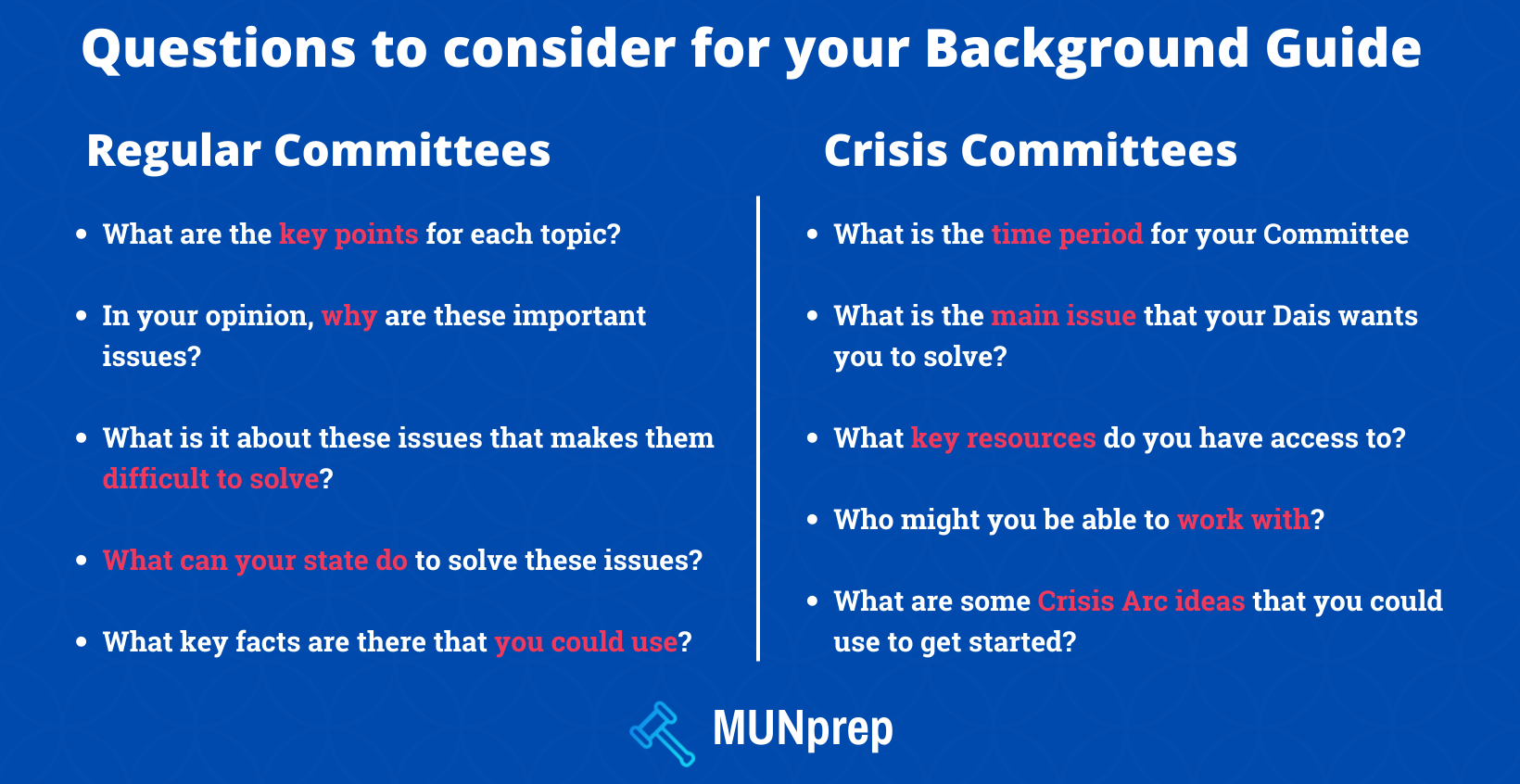
3 - Research and Problem-Solving
Now that you're armed with some great background knowledge, you can dive into research knowing exactly what to look for
After reading your background guide, you will have a basic idea for certain solutions, up next, you'll want to find research and sources that flesh those ideas out. You want to make sure your solutions are creative and different from what other delegates might bring to the table - research helps you to differentiate your work.
This will make sure you will be able to stand out, and hopefully making it more likely to be a leader of your bloc when the time comes.
Ready to learn more? We go into more detail on the research process in this guide here.
Common Issues and Concerns
"I just read my Background Guide - I don’t need to research!"
While the Background guide provides useful information on the committee topic. It’s important to figure out how these details apply to your country.
The subsequent research stage is what’s going to make your solutions valuable. It will also help you to think of solutions that other delegates might not have considered. The research stage requires that you build a general picture of your country in the context of the topic you’re dealing with.
“My country isn’t mentioned in the Background Guide”
While many delegates may think not being mentioned in a Background guide is a weakness in a committee, it is actually one of the biggest advantages you can have as a delegate.
In Model UN, just because you’re not prominent on a given topic doesn’t make you irrelevant. In fact, working with a small country means that you don’t have to worry as much about upholding certain policy objectives or goals - you can be as creative as you want with your solutions and work with anybody you’d like.
There's nothing stopping St Vincent and the Grenadines from being the best delegate in the General Assembly.
The Chair will still call on you for speeches and you’ll other delegates will count your solutions as equally important to any other delegation so long as you argue for them properly.
“My country doesn’t have a good reputation for this topic”
Just like with the smaller delegation, having a country with a poor reputation on a topic may seem like a disadvantage, but it is also an an opportunity in disguise.
Representing controversial countries can position you as a key player in the committee. You have the flexibility to propose fresh ideas and form alliances that might seem unconventional other nations. Giving you more of a chance to stand out.
The Chair will still give you the floor to make speeches, and if your arguments are persuasive and your solutions well-crafted, your contributions will carry as much weight as those of any other delegate.
Your resolution doesn't need to pass to be seen as a key delegate.
A Note on Background Guides For Crisis Committees
While the overall process for Crisis Delegates will largely be the same. The background guide itself might be a bit different.
To start, depending on your topic, your background guide may be your only source of information on your topic. This means that you’re going to be a bit more creative.
There are several key differences in the structure and content of background guides for regular committees compared to crisis committees:
- Structure: Background guides for crisis committees have a more dynamic structure, focusing on the interplay between committee members and offering greater guidance to delegates regarding the committee's desired direction and objectives.
- Focus: Background guides for crisis committees will focus on how the topic might develop over the course of the committee. They highlight specific crisis context, key actors, and their objectives, enabling delegates to analyze and respond to unfolding events within the crisis simulation.
Overall, while regular committee background guides provide a comprehensive understanding of a topic, crisis committee background guides are designed to be just as unpredictable as the crisis committee itself - meaning that as long as you understand the general direction of things, you should be good to go!
Up Next
Up next, we're going to show you how to research for your committee like a pro!
We'll show you how to use our targeted approach to save you time and help you come up with the best solutions.
